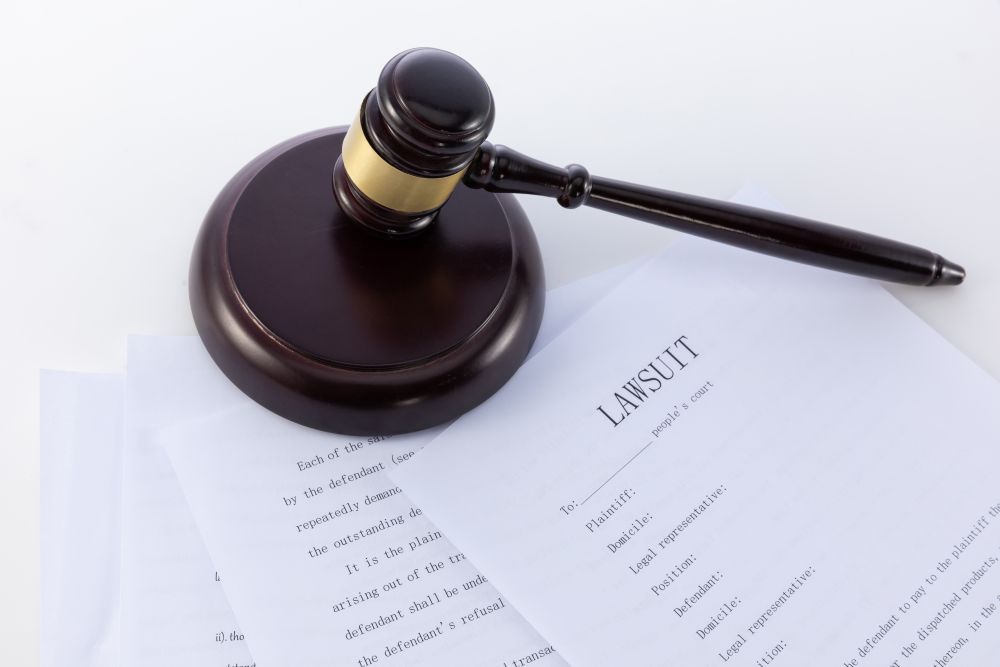Securing a higher slip and fall settlement requires thorough preparation, strategic negotiation, and legal expertise.
Slip and fall accidents can result in serious injuries, leading to medical bills, lost wages, and long-term pain and suffering. Victims often rely on legal representation to secure fair compensation, but not all settlements are equal. Experienced attorneys employ strategic negotiation tactics to maximize payouts for their clients. Understanding how legal professionals approach these negotiations can make a significant difference in the outcome of a claim.
Read on to learn how lawyers can negotiate higher slip and fall settlements.
They Ensure Thorough Case Preparation
Before entering negotiations, a skilled legal professional like a slip and fall lawyer can meticulously prepare the case. This involves gathering evidence such as medical records, accident reports, witness statements, and surveillance footage. The stronger the evidence, the more leverage an attorney has when dealing with insurance companies.
For instance, a well-documented medical history is crucial in proving the extent of injuries. Lawyers typically work with physicians and specialists to provide detailed reports linking the accident directly to the injuries sustained. Expert testimony can further validate the severity of the harm, making it harder for insurers to dispute the claim.
On the other hand, establishing liability as one of the components of a thorough case preparation is key in slip and fall cases. Attorneys investigate whether the property owner failed to maintain safe conditions, such as ignoring wet floors, uneven surfaces, or poor lighting. Photos of the accident scene, maintenance records, and prior incident reports can also strengthen the argument for negligence.
They Craft Strategic Demand Letters
A well-crafted demand letter sets the tone for negotiations. This document outlines the facts of the case, the injuries sustained, and the compensation sought. A legal professional like an experienced personal injury lawyer ensures the demand is reasonable yet assertive, backed by evidence to justify the amount requested.
Moreover, an effective demand letter includes a detailed breakdown of economic and non-economic damages:
- Medical expenses (past and future treatments)
- Lost wages (including diminished earning capacity)
- Pain and suffering (physical and emotional distress)
- Property damage (if applicable)
Underestimating these costs can lead to lower settlements, so attorneys rely on financial experts when necessary.
They Use Effective Negotiation Tactics
Insurance companies aim to minimize payouts, but skilled lawyers use proven strategies to counter lowball offers. These include:
Leveraging Comparative Negligence
When defendants allege the victim bears some responsibility for their slip and fall accident, skilled attorneys employ comparative negligence principles to protect their client’s recovery. Even in states with modified comparative fault rules barring recovery at 50% or 51% fault, lawyers can strategically minimize the plaintiff’s assigned liability percentage. They can present evidence showing the property owner’s primary negligence through code violations, lack of warning signs, or documented maintenance failures to maximize the recoverable damages.
Highlighting Long-Term Consequences
Savvy attorneys combat insurers’ tendency to undervalue claims by meticulously documenting all future impacts of injuries. They work with medical specialists to project costs for ongoing physical therapy, anticipated surgeries, assistive devices, and lost future earnings due to permanent disability.
By presenting comprehensive life care plans and vocational expert testimony, lawyers can transform abstract future hardships into concrete financial demands that insurers cannot reasonably dispute during settlement negotiations.
Using Precedents and Case Law
Experienced litigators strengthen negotiation positions by researching comparable verdicts and settlements from the same jurisdiction. They can prepare detailed case comparisons showing similar injury patterns that resulted in six or seven-figure awards. This demonstrates to insurers that proceeding to trial carries substantial financial risk, making pretrial settlement the more economical choice.
Furthermore, lawyers can strategically reference these precedents when countering low offers, creating persuasive pressure to increase settlement amounts.
Rejecting Initial Low Offers
Insurance adjusters often begin negotiations with intentionally low settlement offers, hoping claimants will accept less than their case is worth. Experienced attorneys can recognize this tactic and refuse to settle prematurely. Instead, they counter with strong evidence—medical records, expert testimony, and documentation of lost wages—to justify a higher demand.
By systematically dismantling the insurer’s undervaluation, lawyers can push for a fairer compensation amount that truly reflects the victim’s damages.
Filing a Lawsuit as Leverage

When negotiations reach a standstill, filing a lawsuit can shift the dynamics in the victim’s favor. Insurers prefer to avoid costly litigation, negative publicity, and unpredictable jury verdicts. The mere threat of a trial often prompts them to reconsider their position and increase settlement offers.
Lawyers can use this strategy strategically, ensuring their clients receive maximum compensation without unnecessary delays, while maintaining the option to proceed to court if needed.
Final Thoughts
Securing a higher slip and fall settlement requires thorough preparation, strategic negotiation, and legal expertise. A skilled attorney leverages evidence, counters lowball offers and emphasizes long-term damages to maximize compensation.
With the information mentioned above in mind, professional representation can significantly increase settlement amounts. Victims can benefit financially and by holding negligent parties accountable, ensuring justice and safer premises for future visitors.


Join the conversation!